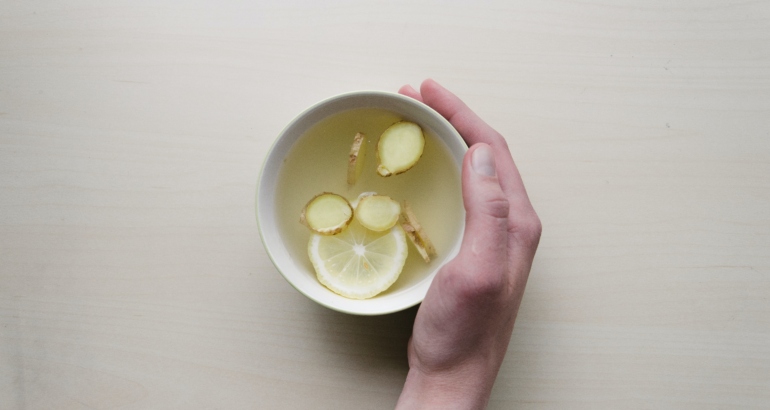Stress and anxiety are major factors impacting our health and wellbeing in modern day life. We have ongoing strains such worries about finance, geopolitical instability, our environment, and individual health concerns especially following the pandemic. When the body undergoes stress and anxiety, it sets off a series of hormonal changes, including the release of cortisol. While cortisol is crucial for managing stress, prolonged exposure can lead to overproduction, potentially suppressing the immune system. This compromise in the immune response makes the body more vulnerable to infections and illnesses.
7% of the population of UK the UK population report feeling stressed every day and a huge 74% of people feel so stressed that it has overwhelmed them, or they have been unable to cope (Mental Health Statistics, 2023). These statistics prove just how important it is to support the body’s resilience to protect and optimise health and wellbeing.
Strategies to Alleviate Stress During the Holiday Season
- Harnessing the Power of Stress-Relieving Herbs
For centuries, herbs have been valued for their therapeutic properties, offering a valuable aid during the holidays. To combat stress and safeguard the nervous system, consider incorporating stress-relieving herbs like Chamomile, Lavender, Passionflower, and energy-boosting adaptogens such as Ashwagandha, Siberian Ginseng, or Rhodiola into your routine. Enjoy them as soothing teas or in tincture form for a therapeutic dose. These herbs can provide a calming effect, helping to ease tension during busy times and promote a sense of tranquillity. The adaptability of herbal tinctures allows qualified herbalists to create personalized blends tailored to individual needs.
- Embrace Immune-Boosting Foods
A well-nourished body is better equipped to handle stress and reinforce the immune system, choosing nutrient-dense foods rich in vitamins and minerals is essential. Include colourful fruits and vegetables, whole grains, and quality proteins in your diet. Enhance your meals with immune-boosting foods like garlic, ginger, and turmeric, known for their anti-inflammatory and immune-modulating properties. Don’t forget gut-nourishing foods such as bone broth, probiotic-rich fermented foods (kimchi, sauerkraut), and fibre-rich options like Brussels sprouts, leeks, asparagus, and artichokes, providing prebiotics to support beneficial gut bacteria.
- Elevate Energy Levels with B Vitamins and Magnesium
Increasing your intake of B vitamins (B6, B9, B12) and magnesium can be instrumental in supporting your body’s response to stress. B vitamins play essential roles in neurotransmitter synthesis and regulation, contributing to balanced mood. Magnesium, involved in over 300 biochemical reactions, acts as a natural relaxant, calming the nervous system and reducing muscle tension. To boost these levels, incorporate whole grains, leafy greens, nuts, seeds, and legumes into your diet. Before considering supplements, consult with a qualified nutritionist or naturopath for personalised advice on the correct dosage.
- Integrate Mindfulness into Your Routine
Amidst festive chaos, carve out moments for mindfulness. Whether through breathing exercises, nature walks, or savouring herbal tea, these mindful pauses can be transformative. Mindfulness practices have demonstrated their ability to reduce stress, improve mood, and enhance overall well-being. By incorporating these moments into your day, you create a buffer against the holiday hustle and bustle, navigating the season with greater calmness.
- Prioritize Restful Nights
Quality sleep supports the body’s recovery from stress and ensures optimal immune function, allowing you to wake up refreshed and ready for festive activities. There are several vitamins and minerals that can alleviate symptoms of insomnia:
Iron: The number one symptom of low Iron levels is fatigue and sleep disturbance. Low iron levels are thought to be a major risk factor in Restless Leg Syndrome, which can cause sleeplessness or insomnia. Low iron can also contribute to feelings of anxiety which can make sleep tough as well.
Calcium and Magnesium: These two minerals are often recommended together just before bed as they both play a role in muscle contraction and relaxation. It is believed that a lack of Calcium and Magnesium can cause numerous sleep interruptions throughout the night, and Calcium aids with the production of Melatonin which helps induce sleep. Chronic insomnia is also one of the initial symptoms of Magnesium deficiency.
Louise Ferguson – Bio-energetic Practitioner and Naturopathic Health Coach. Ambassador for the CNM.
If you are interested in studying to support yourself, change your career or help others, the award-winning College of Naturopathic (CNM) could be the education institution for you. With courses provided online and in-person in various locations, it’s flexible options make it an ideal choice for many. See the link below for access to £250 off of your chosen course. Be sure to mention my name.
https://linktr.ee/redwingholistic
References
Life Hack (2022) Available at: 8 Essential Vitamins And Minerals to Help You Sleep Better – LifeHack. Accessed: 13.12.2023
CNM (2023) 7 Ways to Prevent Overwhelm & Illness this Christmas – CNM College of Naturopathic Medicine (naturopathy-uk.com) Accessed 13.12.2023
Mental Health Statistics (2023) Champion Health. Accessed: 23.12.2023. https://championhealth.co.uk/insights/mental-health-statistics/


